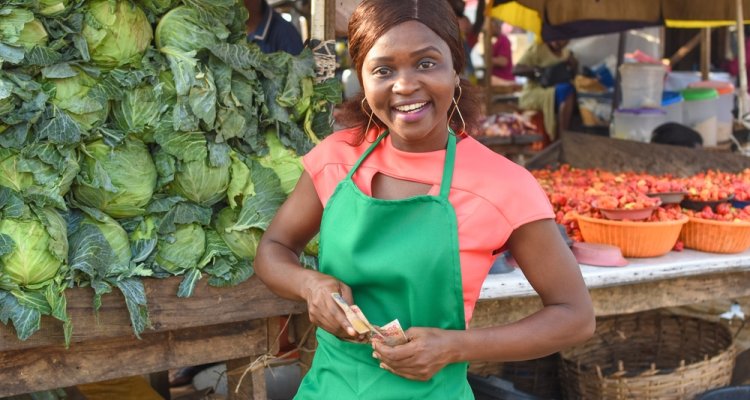
News
Promoting the consumption of affordable, safe vegetables in Benin, Mali and Burkina Faso
‘Safe Locally-Produced Vegetables for West Africa’s Consumers (SAFEVEG) is an action-research programme. It was developed within the context of the EU initiative for Climate-relevant Development Smart Innovation through Research in Agriculture (and food systems) in developing countries (DeSIRA). The SAFEVEG initiative aims to reduce undernourishment, improve the income and productivity of small-scale food producers— particularly for women and youth, and expand sustainable land use. It is being implemented by World Vegetable Center in collaboration with Wageningen University & Research and CIRAD ( French Agricultural Research Centre for International Development ) and a multitude of national partners.
The SAFEVEG programme started in November 2020 and covers three West-African countries: Benin, Burkina Faso and Mali. Its first year was dedicated to diagnostic research that explored barriers and opportunities for innovations across the vegetable value chain, production, marketing and intake of vegetables.
Consumption of safe vegetables
WUR and its national research partners are in charge of the work package that is concerned with promoting the consumption of safe vegetables. This can be achieved by making safe vegetables affordable, available and acceptable to consumers. The question is: what is the problem with vegetable consumption? Why do people do not eat enough of this nutritious food?
To answer that question, we conducted extensive literature reviews, consulted many different stakeholders in the three countries and implemented surveys among thousands of consumers. We concluded that people in Benin, Burkina Faso and Mali eat far below the recommended daily amounts. This results in micro-nutrient deficiencies, which negatively impact the full development of children and may cause other food-related problems such as anemia. Households often can't afford vegetables, as they are simply too expensive. Moreover, people have little faith in the safety of vegetables. The latter is due to a growing awareness that vegetables might be produced using high dosages of agro-chemicals or unhygienic handling, including water infested with microbes such as E.coli.
Making vegetables safer and more affordable
Action is required to make vegetables affordable and healthy for human consumption. Discussing the abovementioned issues with many stakeholders in the food system, we came to identify two clear opportunities for overcoming these problems. In Benin and Burkina Faso, street food vendors play an especially important role in providing affordable food to people with low incomes. However, these foods generally lack adequate amounts of healthy vegetables. To solve this, we have trained street food vendors to increase the portions of green leafy vegetables in their menus. We assessed the responses of daily customers to such increased portions and their willingness to pay a little extra. Overall, some 60% of all customers indicate that they appreciate the larger portions of green leafy vegetables.
In Mali, we found out that many consumers do not trust the safety of vegetables. To overcome this problem, we identified safe origins of vegetables, where producers respect the norms of agro-chemical use. To promote these safe vegetables, we will introduce a label on the retail markets, helping customers to distinguish these safe vegetables from other products on the market and choose the safer version. During the test, we will assess the responses of customers to the well-recognisable labels and whether this results in higher sales by these retailers.
National research partners know their food
The action studies are conducted by our national research partners, who are not only well equipped as academics, but also know their food systems very well. This increases the relevance of our interventions and the chances of adoption if we successfully test an innovation. The role of WUR is to support our national researchers, disclose international knowledge and experience, and provide them with all the resources needed to be highly effective. One could say that, during Covid, WUR has learnt to support its national partners from a distance and this has increased the relevance of WUR’s work, whilst reducing its costs. You could also see this approach as a last step in the ‘decolonization’ of WUR, as major responsibilities and control over joint research is transferred to national partners. One way or the other, we are convinced that our work will be impactful, contributing to food system transformations that provide low-income people with healthier food.
- Unfortunately, your cookie settings do not allow videos to be displayed. - check your settings